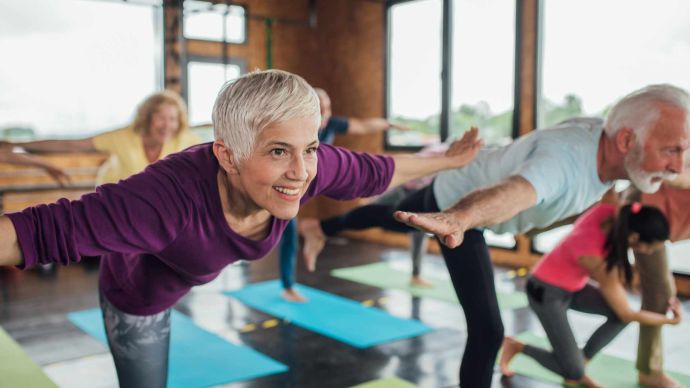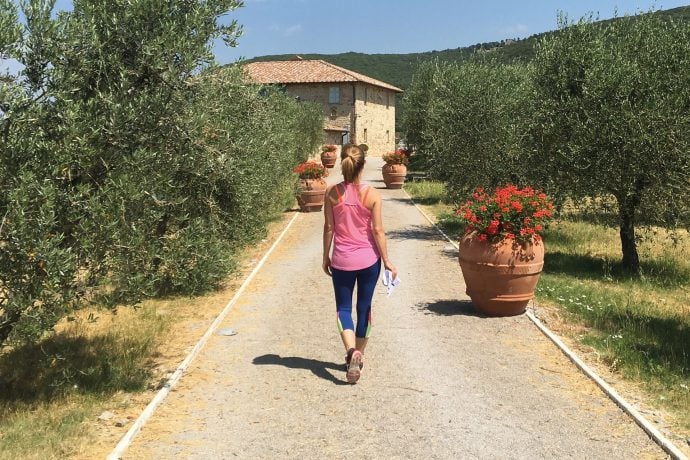Do you want to improve your health and well-being in a holistic way? If so, you might want to try Pilates and mindfulness. These two practices can help you achieve a state of balance and harmony between your body and mind. Pilates is a form of exercise that focuses on strengthening your core muscles, improving your posture, and increasing your flexibility. Mindfulness is a form of meditation that teaches you to pay attention to the present moment, reduce stress, and enhance your mood. The blog below hopefully answers some of the questions that you may have about the benefits of Pilates and mindfulness, and how you can start practicing them today.

What exactly is mindfulness?
You hear a lot about mindfulness these days, but essentially it just means being truly aware of your thoughts, your feelings, your physical sensations, and also of the world around you – but without letting our tendency to judge these things distract us from the simple pleasure of just being.
Why Pilates and Mindfulness?
People learn to pay more attention to their bodies and emotions through regular Pilates sessions. It’s also a form of mindfulness practice. When you breathe deeply and work your body hard for an hour, you naturally become more aware of your physical and emotional state. When you combine Pilates and mindfulness, you can achieve a state of physical and mental harmony. You can become more aware of your body and emotions, and more resilient to challenges.

Pilates lessons by the pool at the holiday villa in Tuscany
Does it work?
Absolutely. Leisure activities such as pilates, mindfulness, and meditation may feel a little self-indulgent to a lot of people but they are actually extremely good for our health. Mindfulness training teaches you to let go of those feelings. Not to ignore them or deny them, but just to acknowledge them with non-judgmental awareness. One of our Pilates holiday guests summed this up perfectly, “Mindfulness training is like being given permission to relax.”
How exactly do you train to be mindful during a Pilates session?
The two already go hand-in-hand, so most of the time you probably wouldn’t even be aware when your Pilates teacher is doing this. It’s really just about encouraging people to be more aware of things during the session, whether that’s the way it feels when they move their arm across their chest or the thoughts that come into their head while they’re holding certain positions. Our teachers will, quite often, introduce 10 minutes of meditation into the session nearly always focusing on the breath, which helps people become more skilled at altering their focus of attention, and to be less at the mercy of their scattered thoughts.

Returning to the villa after an outside Pilates class
A lot of Flavours’ Tuscan retreats hold Pilates outside – is this not a distraction?
Well, yes, but only in a good way! Mindfulness is all about fostering a judgment-free awareness of the world around you. So that birdsong, that wind in the olive trees, the tractor in the fields, or the chef clattering about in the kitchen? They’re just sounds: not good, not bad, just sounds. They’re the perfect training tool, really!
What do our guests enjoy about the Tuscany retreats?
Our guests, when asked this question usually reply with ‘What don’t we enjoy’?
“The landscape is so serene and bucolic, and the villas that Flavours Holidays choose there are all in such gorgeous, calm places”.
“It’s a wonderful contrast: in the morning, you can practice Pilates on a roof terrace amid vineyards and olive groves, and in the afternoon, you can discover old, cobbled towns like Siena and Arezzo. They are close by and accessible. And with all the mindfulness training, you can appreciate everything more deeply”








I absolutely agree with the above comments. I am also a Pilates teacher and have always believed that Pilates is a form of mindfulness through default.
If we teach correctly and help people understand that this is their time to think about themselves, to be aware of what their body is telling them and to really ‘feel’ where they are at this particular moment in time, to have that mind/body connection and to think of nothing other than themselves and what their instructor is telling them, then we’re doing a good job. I want my clients to come away feeling rested, pleased with themselves for their achievements and of course wanting to return for more mind/body challenges and the peace it can bring, as well as having had a little fun.
This sounds amazing. As a art student I have found lockdown very difficult and had a mental block that I am only just beginning to unravel. Mindfulness sounds like something that would be a huge benefit and help me with not just my physical and mental health, but my art too.
I have been unable to attend Pilates for a while now due to Covid etc. and although I set out to continue at home with the exercises
invariably I find I have “more important things” to do.. The same applies to Mindfulness and, or, Meditation. It really does feel I should be busy with other tasks, even though I know the benefits, I very rarely give myself time to practice.
Painting is something I try to make time for and it is both distracting and relaxing, although sometimes frustrating when not going well. The same can be said for Cookery. My favourite Tea towel says “Think less. Bake more ”
The zoom lessons from Flavours by our Tutors have been a great help and I really love them.
Now, after reading Rosalind’s message I am also looking forward to joining a Pilates and Mindfulness lesson.
I can’t skip lessons..no excuses…no ” I ought to be ? “, and really, I know I will be better able to cope with my “tasks” afterwards.